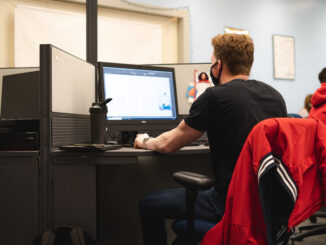03/21/2019
By Alyse Kaminski
On Friday, March 15, I received an update on my phone that a man entered the Al Noor Mosque and the Linwood Islamic Center in Christchurch, New Zealand and killed 50 people. I was surprised that I wasn’t being informed about an attack in the United States, but that did not lessen the pain I felt.
Within hours I received another notification on my phone informing me that New Zealand intends to reform their gun laws. This is practically unheard of in America. Mass shootings happen here so often and the people beg for change, yet nothing happens.
While it is almost refreshing to see common-sense gun laws being made around the world, I am frustrated that it is not happening in America, where mass shootings are an epidemic and a risk we face every single day when we exit our homes.
Before changing them as a result of this attack, New Zealand’s gun laws were very relaxed. It was surprising to me that they did not have the issue that U.S. has with shootings. I have to say that in a way it proves that the problem of mass shootings not only lies within the realm of gun control, but in places like mental health reform. That is not to say, however, that I don’t think the U.S. needs gun control. If you know me at all, you know that I actively support common-sense gun reform.
New Zealand’s Prime Minister, Jacinda Ardern, told the people that, “Within 10 days of this horrific act of terrorism we will have announced reforms which will, I believe, make our community safer.”
I have to applaud Prime Minister Ardern for her prompt and graceful response to the tragedy. That is what a good and stable leader looks like. When mass shootings happen in America, our leaders send out mindless thoughts and prayers via Twitter and tell the people that it is “too soon” to think about gun reform.
I do not think the conversation in New Zealand about new gun laws has taken anything away from the mourning of victims. If you take a look at the news, there are still stories of the victims and vigils being held in their honor. In no way have they been forgotten about in the midst of common sense rhetoric about change.
Not only is gun control an important factor in this tragedy, but there needs to be a conversation about white supremacy here. Think about the demographic of those targeted. Think about who did the killing. It’s not difficult to understand the motive behind the attack. White supremacy is still alive around the world, and it needs to be talked about.
Despite this, President Trump said that he does not see white supremacy as a large issue.
“I think it’s a small group of people,” he said.
That sounds like something a white supremacist who’s hiding his white supremacy would say. To publicly not see an issue about white nationalism is mind boggling, terrifying, and it sets a toxic example to the world. Not only that, but it gives white supremacists a green light to keep doing what they’re doing. There is no end in sight for them in America and abroad.
Needless to say the shootings in Christchurch are devastating. It was yet another attack on people peacefully practicing their religion. It was another attack on the Islamic faith, which remains to be misunderstood. There needs to be a dialogue about this, as well — about the fact that the majority of Muslims are not what we see depicted on the news.
It is unbelievably difficult to see a sort of silver lining in times of tragedy such as this one. If anything of value comes out of something so heartbreaking, I hope that is common-sense gun reforms for New Zealand that will be heard around the world. I hope that conversations about white nationalism are brought on. If we do not start talking about these things now, we never will.
It is never too soon.



